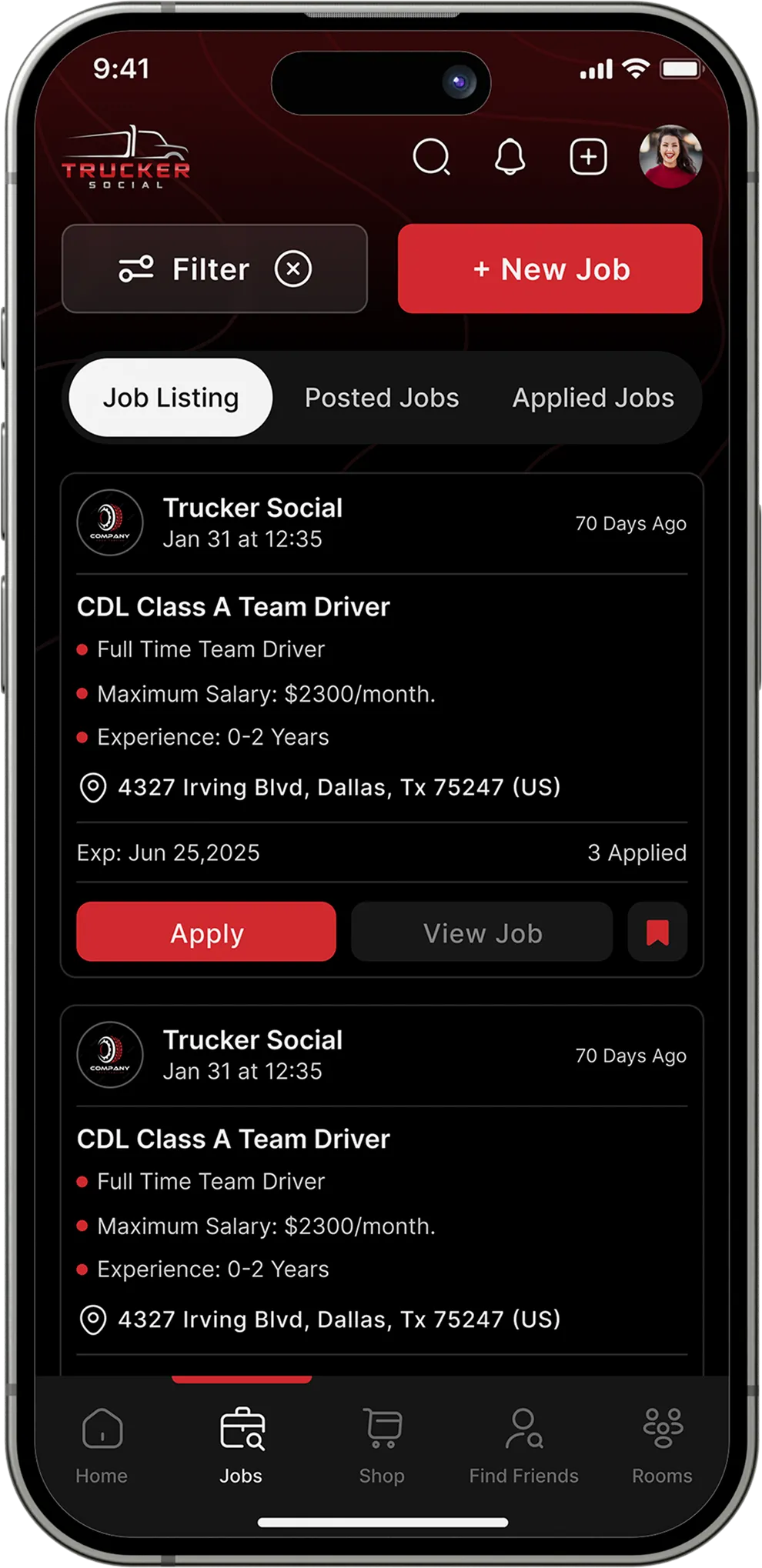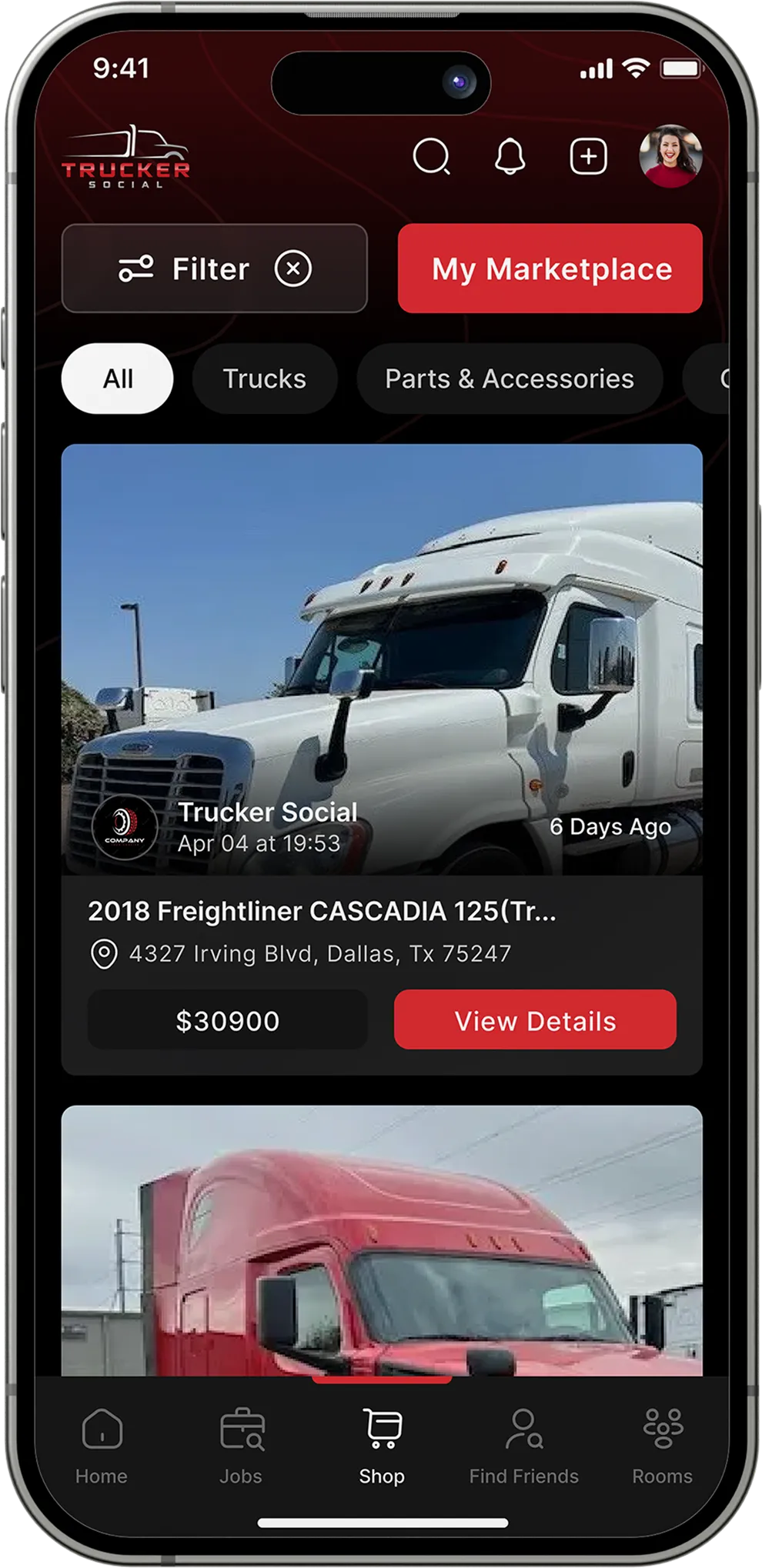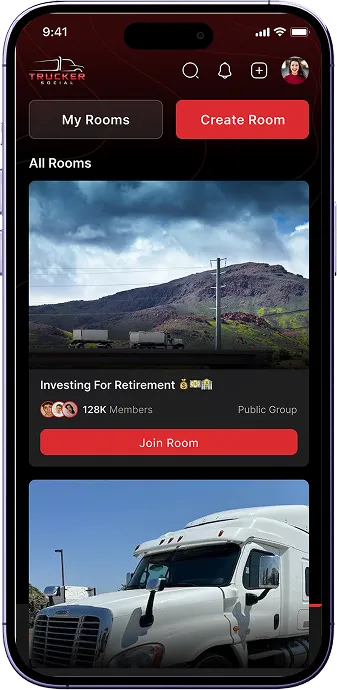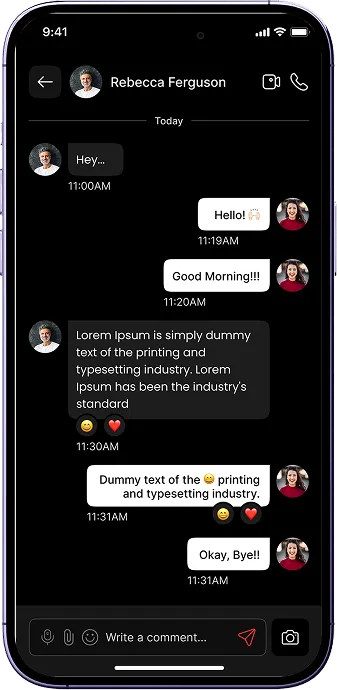Connect the Road.
Power the Journey.
Empowering the trucking industry with smarter community building, modern marketing, and innovative recruiting solutions.


The Trucker Social
Advantage:
Our Trucker Social app enables people in the trucking community to connect with each other. It encourages members to share stories, learn from one another, build deeper relationships, advance their careers, and find the trucks, equipment, and services they need.
In addition, Trucker Social provides marketing solutions to its clients that can help them achieve exceptional results. Whether you want to sell products, offer services, or find qualified drivers, we can help you reach your goals. By using our app, influential network, and cutting-edge marketing strategies that integrate dynamic content and captivating videos, we can help you drive ROI and grow your business.
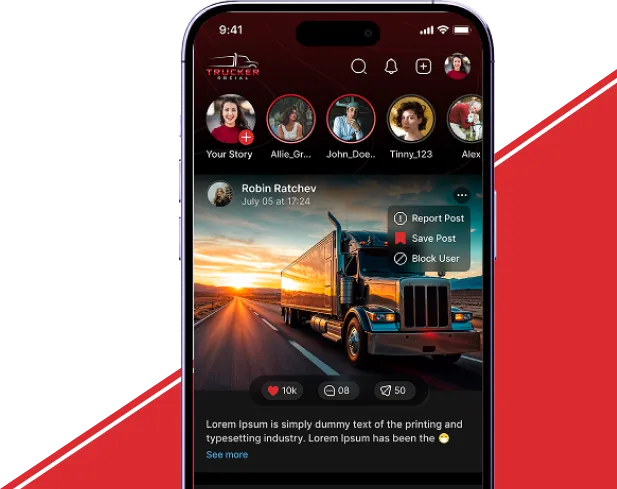

The Trucker Social Edge:
Trucker Social App offers many great features that simplify the lives of those in the transportation industry. Here are some benefits you will experience once you download Trucker Social.


Jobs
Find trucking opportunities or publish jobs that accelerate growth.


Marketplace
This app makes buying or selling parts, vehicles, and equipment faster and easier.


Rooms
Be part of a trucking group or build your own community at speed.


Story
Create, upload, and share Stories with fellow truckers on the go.


Chat
Encrypted Chat and File Sharing for secure communication and collaboration.


Find Friends
Now finding the right connections is made simple with this app.

How to Use Trucker Social App?
Trucker Social App offers many great features that simplify the lives of those in the transportation industry. Here are some benefits you will experience once you download Trucker Social.


Search in App Stores
and Download
Download the Trucker Social app from your mobile device anytime and anywhere easily.

Create Your Profile to Get Started
Create your profile, build a community, share stories, and make new connections.

Send Instant Messages or Video Chat
Connect and chat instantly with the help of this platform’s secure instant messaging capability.

Our Marketing Solutions
As a seller, recruiter, or advertiser, know that Trucker Social will help you reach your business objectives.
Whether you want to enjoy being part of a community tailored for you and your experiences or want to take advantage of our
tools to promote your jobs, products, and services Trucker Social has you covered.
Trucker Social is the only platform built to support the needs of those in the transportation community.

Working to build a better future for the Trucking Community!
© 2026 All rights reserved.



